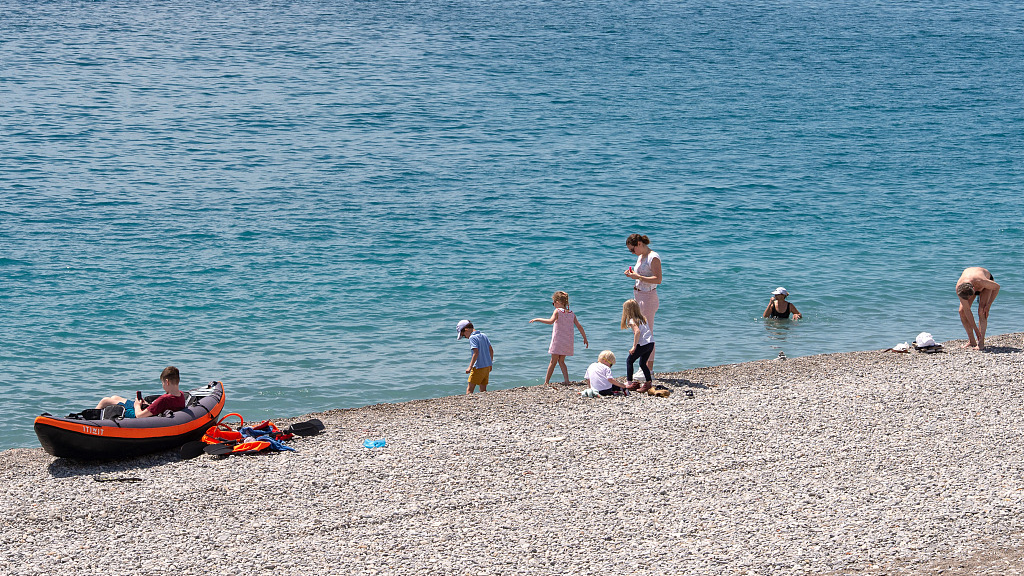
As summer nears, European countries, including Italy, France and Greece, have gradually lifted travel restrictions and announced reopening borders at different levels in an effort to save the tourism sector hit hard by the coronavirus pandemic. However, European holiday-makers are likely to opt for staycations in their own country for fear of the second wave of the COVID-19 outbreak that has so far infected over 2 million people in Europe, according to World Health Organization (WHO), accounting for about 38.5 percent of the total number.
France
The French government recommends its citizens take their summer holidays in France instead of traveling abroad, Environment Minister Elisabeth Borne said on Sunday.
"We are absolutely not suggesting that the French reserve their holidays abroad. This year, the idea is to holiday in France," Borne told France Inter radio.
She added that next week the government would decide on possibly loosening rules on French domestic travel, currently limited to a maximum 100 kilometers from home. Parks in Paris, the epicenter of the outbreak in the country, have to remain closed for now, as the capital is still a "red zone" for virus circulation.
Earlier this month, President Emmanuel Macron said it was unlikely that French people would be able to undertake major foreign trips this summer and that even trips within Europe may have to be limited to reduce the risk of a resurgence of the coronavirus epidemic.

People are seen at a beach in Nice, France, May 20, 2020. /VCG
People are seen at a beach in Nice, France, May 20, 2020. /VCG
Germany
Germans usually love their sun-soaked summer holidays abroad, with Spain the top destination, but coronavirus concerns have prompted more people to turn to staycations this summer.
According to Munich-based tour operator FTI Group, demand for holidays at home has gone through the roof. "Bookings by German holiday-makers in their own country are well ahead," said director Ralph Schiller, noting a "clear upward trend" in stays of at least one week compared to last year.
Even if borders are reopened, tourists will still have many unknowns to navigate, according to Norbert Kunz, president of the German Tourism Federation.
"What security measures are in place? What happens if a new wave of coronavirus breaks out in the destination country or at home, and if it leads to new travel restrictions?" he points out.

Visitors at the old town of Bonn in Germany, April 5, 2020. /VCG
Visitors at the old town of Bonn in Germany, April 5, 2020. /VCG
Germany is preparing to lift an official ban and allow travel to some European countries from mid-June, meaning trips to the Mediterranean will theoretically be back on the menu. But politicians are taking pains to keep stressing the risks.
"Be under no illusions: There will be no quick return to 'business as usual'," Foreign Minister Heiko Maas has warned.
Read more: Greece to restart tourism June 15, international flights July 1
(With input from agencies)
(Cover: The Eiffel Tower in Paris, France, May 16, 2020. /VCG)